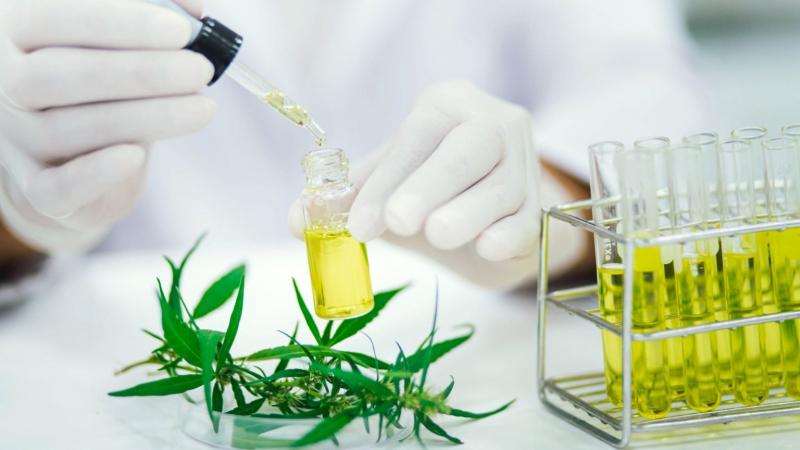As more states legalize medical and recreational marijuana use, strict regulations surrounding product quality and safety have emerged. All states with legal cannabis programs require testing of flower, edibles, concentrates, and other products for things like pesticides, heavy metals, mold and mildew before they can be sold in licensed dispensaries. This testing helps ensure consumers are getting products that meet health and safety standards. The implementation of regulations has created a booming industry of cannabis testing labs across the United States. In this article, we will explore the various types of cannabis testing services available in the U.S. cannabis testing services market and the importance of these tests.
Testing for Potency and Contaminants
U.S. Cannabis Testing Services laboratories analyze marijuana samples for both potency and potential contaminants. When it comes to potency testing, labs determine the concentration of THC, CBD, and other cannabinoids in different cannabis products. Regulators want to know the accurate potency to ensure labeling is correct and that products don't exceed legal limits. Testing for contaminants screens for unwanted pesticides, microbes, residual solvents from extraction processes, and heavy metals that could pose health risks if consumed. Some labs even test edibles for proper homogeneity and dosage consistency. The rigorous testing helps keep the legal cannabis market safe.
Providing Independent Certification
Most states require that licensed cannabis businesses utilize independent, third-party testing facilities that are licensed and accredited by the state itself. Using independent labs provides an unbiased analysis that regulators and consumers can trust. The labs do not have a direct business relationship with the cannabis companies they test, eliminating potential conflicts of interest. Their role is to honestly evaluate samples and report findings, even if products fail to meet standards. This independent certification process is crucial to the integrity and credibility of the regulated cannabis market.
Adhering to Strict Laboratory Standards
To fulfill their role as independent evaluators, cannabis testing labs must adhere to very strict laboratory standards. This ensures accurate, reproducible results. Facilities designing and implementing quality assurance programs in accordance with guidelines from accreditation bodies like ISO/IEC 17025. Proper documentation of equipment calibration, employee training, testing methods, and record keeping is also required. Labs go through on-site assessments and regular proficiency testing to maintain accreditation. Meeting all these standards is no small task, but it's necessary to generate trustworthy data that satisfies regulatory needs. It's a complex role, but crucial for consumer safety.
Evolving Testing Technologies
As the cannabis industry continues gaining acceptance, testing labs are working to advance their technologies and analytical methods. Methods originally used for potency testing like gas chromatography (GC) and high-performance liquid chromatography (HPLC) are now being optimized for greater sensitivity and specificity. New technologies are also being evaluated and implemented. For example, some labs now use cutting-edge mass spectrometry techniques that can provide extremely detailed cannabinoid and terpene profiles. Testing for residual solvents is moving to headspace GC methods for improved accuracy. Developing these enhanced capabilities helps labs meet evolving regulatory demands while also offering valuable data to cannabis businesses.
A Growing Number of Testing Labs Nationwide
Given the widespread implementation of regulations mandating testing, there has been tremendous growth in the number of cannabis testing facilities nationwide. In states with longstanding cannabis programs like Colorado, Oregon and California, dozens of licensed independent labs now operate. But in states more recently launching legal markets, the number of licensed testing labs is also rapidly expanding to meet the needs of growing industries. For example, Illinois went from just a few licensed testing labs to over 15 within its first year of legalizing adult-use cannabis in 2020. Other states seeing major growth include Michigan, Florida and New Jersey as their programs mature. This proliferation of testing labs ensures product quality oversight can keep up with increasing production and sales.
Economic Opportunities in Lab Services
As cannabis testing becomes standard practice in more markets, it's creating meaningful business and job opportunities. Independent labs employ analytical chemists, technicians, IT professionals and others to perform the highly skilled work of cannabis evaluation. Labs also hire administrative support teams to manage sales, customer service and regulatory compliance aspects. Some cannabis testing labs now employ over 100 people each. And as cannabis programs regulations intensify, demand is expected to remain high for advanced analytical testing services. This drives labs to continue hiring and investing in new equipment and facilities. The flourishing laboratory sector is a bright spot economically within the legal cannabis industry.
Ensuring Patient and Consumer Protection
Whether for medical patients or adult-use consumers, mandatory cannabis testing protects public health. It screens out contaminated products that could harm them. While North America currently dominates the U.S. cannabis testing services market led by countries like the U.S. and Canada, increasing legalization of medicinal and recreational cannabis in several countries is fueling worldwide demand. Accurate potency certification also prevents issues from over-consumption of highly potent items. Independent third-party labs play the vital role of implementing strict protocols to analyze cannabis objectively and report results truthfully. While their services do carry costs that get passed to consumers or taxpayers, most agree the testing is worthwhile to build confidence in the quality, safety and integrity of the legal cannabis market. Proper oversight through laboratories will continue being essential as more states prepare for adult-use legalization in the coming years.
Get more insights on This Topic- U.S. Cannabis Testing Services
